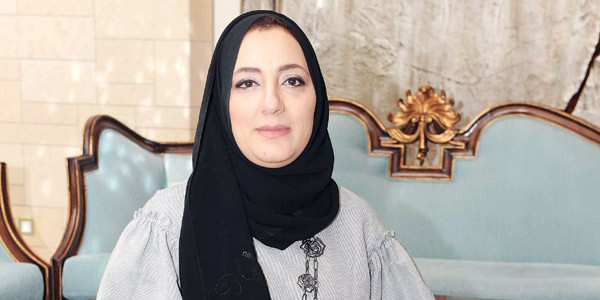By Majd Othman
KUWAIT: The Central Bank of Kuwait (CBK) raised the discount rate for the fifth time this year by about a quarter of a percentage point, from 2.5 to 2.75 percent, with the aim of maintaining the attractiveness of the dinar, expanding the margin between the domestic discount rate and the US interest from its narrowest level in a century, according to the latest banking data.
The Central Bank also clarified that the maximum limits for interest rates on lending transactions in dinar, setting the new interest for commercial lending transactions and other forms of lending with a duration of no more than a year at 5.25 percent, and a duration of more than one year at 6.75 percent, while setting the interest on consumer loans and housing at 5.57 percent.
In an interview with Kuwait Times, Amani Bouresli, former minister of commerce and industry and finance professor at Kuwait University, spoke about the possible impact of CBK's decision to raise the discount rate on Kuwait economy and businesses.
Bouresli said since the Kuwaiti dinar is partially pegged to the US dollar, there will certainly be a local consensus to raise the interest rate in tandem with the increase in the US interest rate by the Federal Reserve. "The CBK has increased the rate at the right time as the world is experiencing unprecedented wave of inflationary pressures. In order to tame spiraling inflation, it is imperative to activate monetary policies, and raising the interest rate is one of the main tools to check prices," she pointed out.
"The repeated hikes in interest rates that we witnessed in recent months have been initiated with a view to taming inflationary pressures. These measures are expected to continue until inflation rates come under control," she said, adding, "then the reverse cycle of lowering interest rates will start."
In terms of the effects of raising the discount rate, Bouresli said the CBK decision is an economically sound decision as stable prices are a crucial prerequisite for sustained economic growth. She said there will be a tendency from institutions and individuals to save more money and cut their spending due to the increase in interest rates on deposits, which will also go up in return.
Bouresli clarified that the CBK had three options before it when the Federal Reserve raised the interest rate. "First, the CBK could have raised the interest rate in tune with the Federal Reserve decision at the same time and at the same rate. Second, it could have maintained the status quo as what happened at the beginning of the Fed hike. And third, it could raise the rate higher than what the Federal Reserve did, as what happened recently," she said.
"The present economic situation in the GCC and Kuwait in particular prompted the CBK to raise the discount rate. For example, when oil prices go up, it is a positive thing for the Kuwaiti economy, while a spike in oil prices will have a negative impact on global economy as the prices of energy and essential commodities will go up. So, our domestic economic situation may not be affected like the global market," Bouresli added. "The monetary policy cycle is now increasingly synchronized around the world. It must occur but its extent may be higher or lower, according to domestic economic factors which may be varied from global economic factors," she pointed out.
Regarding the possible impact of a hike in interest rate on individuals and businesses domestically, Bouresli said: "The interest rate hike will not be in the interest of business owners and those who need to borrow, but savers will have full advantage. In general, a rise in interest rate will have a negative impact on the corporate sector and could lead to a minor slowdown in economic activity. With inflation at multi-decade highs in many countries and pressures broadening beyond food and energy prices, policymakers have pivoted toward a tighter policy. A higher interest rate could help tame prices locally, which are also witnessing an upward move."











